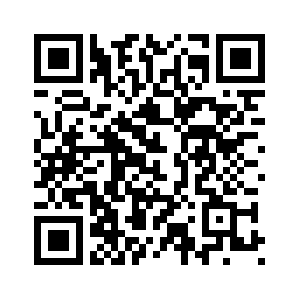by Xinhua writer Jiang Li
BEIJING, May 7 (Xinhua) -- Niccolo Machiavelli might have never anticipated that his booklet on politics The Prince would become a handbook for politicians who resonate with the doctrine of deception and ruthlessness in political maneuvering over the centuries following his death.
Today, machiavellianism has some new loyal inheritors in Washington who have been practicing the political theory to the extremes in the face of the coronavirus pandemic.
One of Machiavelli's key lessons is, "He who seeks to deceive will always find someone who will allow himself to be deceived." It turns out that some Washington politicians are truly good students of that teaching.
Since the COVID-19 outbreak, policy-makers in the White House have been doing everything they can to manipulate public opinion in their own country and that of the world.
At first, they didn't bother to take the repeated early warnings coming from its own intelligent officers and experts, the World Health Organization (WHO) and Beijing seriously, called the raging pandemic a "hoax," and misinformed the public that the virus was a "flu" that would disappear miraculously.
When the pandemic started to grow rampant in the United States, they began to pretend as if they knew nothing about the pathogen, and blamed China, the WHO, the previous U.S. administration, the so-called deep state in America, and whoever else they could think of, except themselves.
Machiavelli also taught that "the end justifies the means." Those selfish and egoistic Washington power hunters appear to be true believers of that creed.
In a bid to ensure an election victory in November, the current U.S. administration cares more about ballots than body counts.
They are sidelining the role of scientists and common sense in decision-making, ready to silence or sack people like Rick Bright, a leading U.S. vaccine scientist, who dissented against the powerful, and attempting to reopen the country against the advice of professional opinion. They match literally every part of Machiavelli's "successful ruler" description by being "brutal, calculating and, when necessary, utterly immoral."
The third Machiavellian doctrine this White House seems to have drawn inspiration from is "The promise given was a necessity of the past: the word broken is a necessity of the present."
It is widely known that the United States helped build the post-war world order underpinned by multilateral institutions such as the United Nations and the International Monetary Fund.
Today, Washington has decided those global governance arrangements it once supported now go against its desire to put "America First," or in other words, put itself well above all others. It has thus begun to practice a withdrawal doctrine.
For more than three years, this administration has cut itself loose from a host of international organizations or treaties. Most recently, it announced a suspension of funding for the WHO while accusing it of "severely mismanaging and covering up the spread of the coronavirus."
The world today is no longer that divisive I-win-you-lose place when the Italian thinker wrote his booklet, but rather a densely connected community where the wellbeing of one country depends on the wellbeing of others.
The fact that the United States is now the world's epicenter in the pandemic should serve as a wake-up call for some Washington politicians that zero-sum, calculative and self-serving Machiavellian teachings are part of the problem, not the solution, in coping with this unprecedented global public health crisis.
As the world's sole superpower, it should stop acting as the disruptor-in-chief in this global pandemic fight. Abusing its power in such a Machiavellian manner will only allow the plague to wreak more havoc and claim more lives. That is too high a price for both the United States and the rest of the world to pay. Enditem



